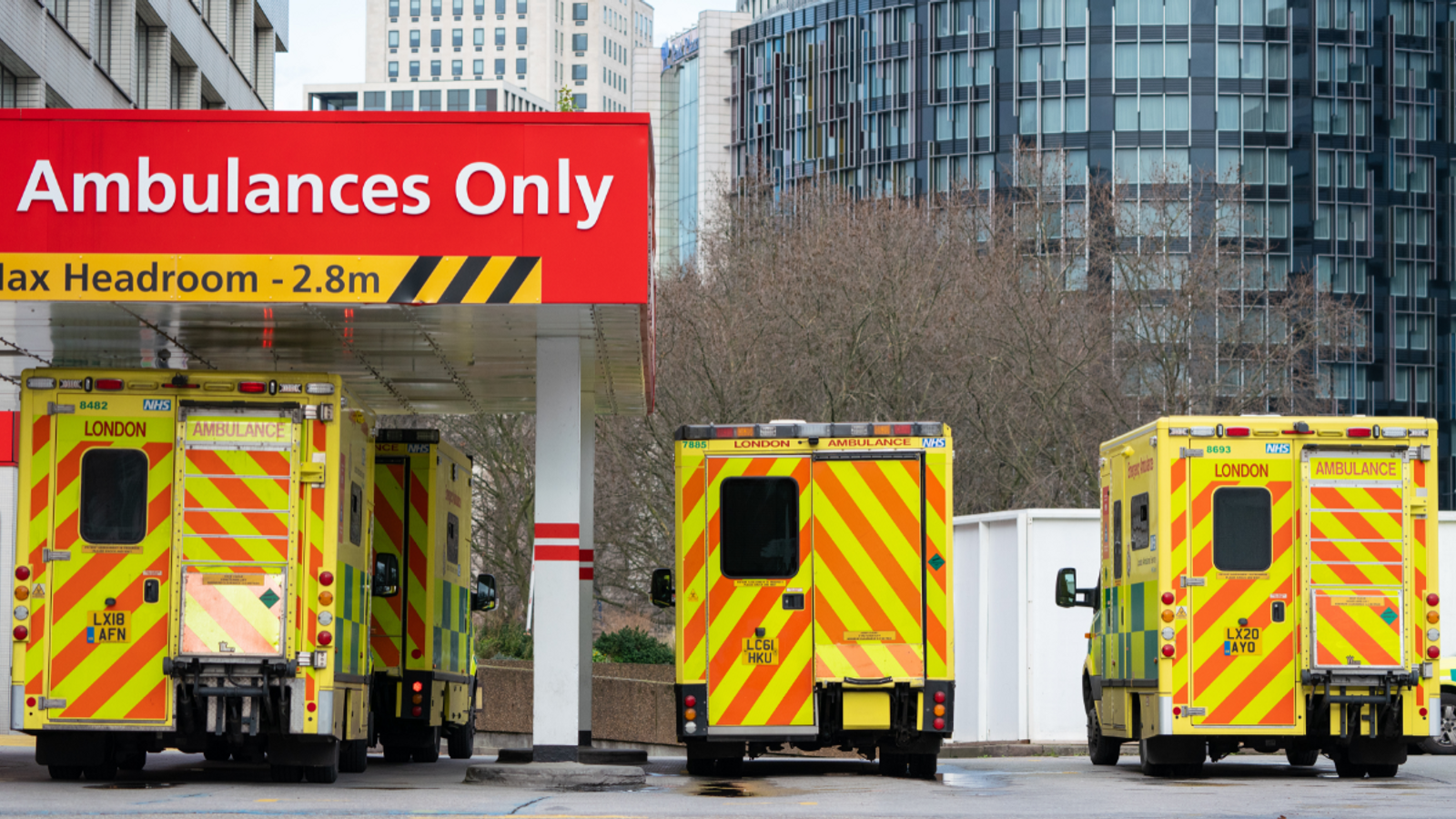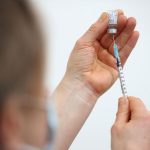Researchers are warning people who have had their first COVID-19 vaccine to remain cautious after figures suggested one in 14 people admitted to hospital with the virus have had at least one jab.
The scientists behind the data say the majority would have been infected shortly before or soon after their first jab, before proper immunity to the disease had time to develop.
In the study only around 1% of people developed symptomatic COVID-19 despite having a jab 21 days or more previously.
That figure may be artificially low because the risk of exposure has dropped significantly this year, the researchers say.
Professor Calum Semple, professor in Child Health and Outbreak Medicine, University of Liverpool, and the study’s co-lead, said it was “reassuring” to see that the number of vaccine failures was very low.
But, he went on to say the number of people acquiring COVID-19 within two weeks of being vaccinated “indicates people are letting their guard down because they’ve been vaccinated”.
“There is evidence here that people are unfortunately assuming that they’re protected very quickly after vaccination and that’s not the case,” he said.
The study of just over 50,000 hospital patients since 8 December found 3,842 cases of vaccinated people in hospital up to 10 April.
Of those 92% (3,534) tested positive for COVID-19.
This accounts for around 7% of all coronavirus-related hospital admissions.
The data was submitted to SAGE government advisers from the ISARIC4C consortium’s COVID-19 Clinical Information Network (CO-CIN).
Early analysis shows mortality remains high for people in high-risk vaccination categories who are admitted to hospital with COVID-19 – even if they have been vaccinated 21 days previously.
Further investigation into the deaths of people over 80 who have been vaccinated suggests that those who get symptoms soon after their jab are at greater risk, and immunity is at its best three weeks after the first dose.
Despite the higher risk immediately after vaccination, the number of deaths from COVID-19 in those who hadn’t received any vaccine at all was significantly higher.
Dr Annemarie Docherty, honorary consultant in critical care at the University of Edinburgh agreed with Professor Semple’s warning, saying: “These are vulnerable, elderly people and I think that that possibly emphasises the importance of ongoing vaccination of lower-risk groups.
“If there is a surge and there is coronavirus around, the vaccine isn’t 100% effective, so it is entirely possible that the elderly people will catch coronavirus again despite being vaccinated, and will end up in hospital and may die.
“There is strong support for widespread vaccination.”






















